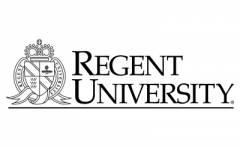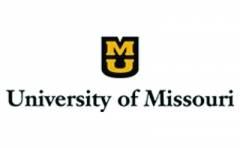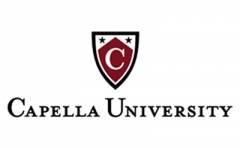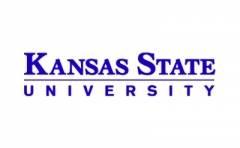Best School Counseling colleges in the U.S.
School counselors play a vital role in our educational systems. They support future college students on their journeys and prepare K-12 students for future successes beyond the school environment.
Now is the perfect time to enter this impactful career field, with the Bureau of Labor Statistics projecting an 11% job growth in the coming decade! To be hired in most states, you’ll need a Master’s Degree in School Counseling plus typically a license or certification.
Many excellent schools offer high-quality, affordable training programs to get you qualified for this empowering career. If you’re ready to make a difference in the lives of America’s youth, here’s the ultimate guide to earning your Master’s Degree in School Counseling.
Best School Counseling colleges in the U.S. for 2025
Regent University offers 5 School Counseling degree programs. It's a large, private not-for-profit, four-year university in a large city. In 2022, 101 School Counseling students graduated with students earning 68 Master's degrees, 20 Certificates, and 13 Doctoral degrees.
Ranked among the Best Online Programs for Grad Education by U.S. News & World Report, Mizzou’s online Master of Education in School Counseling program is focused on the “science-practitioner model” made popular by Dr. Norm Gysbers, and hailed as “one of the foremost scholars of our time in school counseling.”
Capella University offers 8 School Counseling degree programs. It's a very large, private for-profit, four-year university in a large city. In 2022, 327 School Counseling students graduated with students earning 214 Master's degrees, 70 Certificates, and 43 Doctoral degrees.
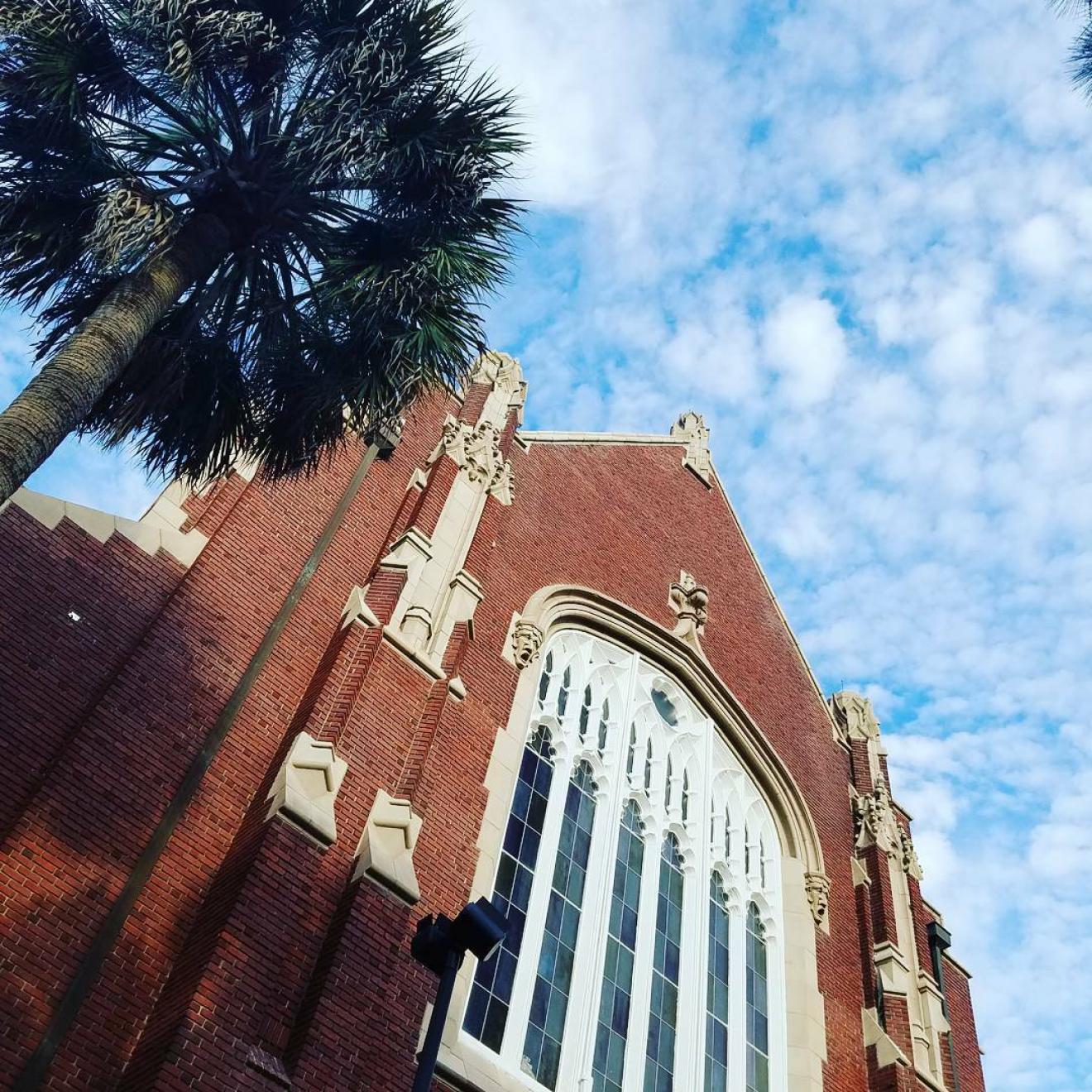
University of Florida offers 7 School Counseling degree programs. It's a very large, public, four-year university in a midsize city. In 2022, 27 School Counseling students graduated with students earning 21 Master's degrees, and 6 Doctoral degrees.
Nestled away in Olathe, Kansas, this KSU campus branch offers a 48-credit hour M.S. in School Counseling in a smaller, more supportive environment that integrates school experiences and developmental activities. Students complete a professional portfolio that can help them stand out during job applications.
University of Nevada-Las Vegas offers 4 School Counseling degree programs. It's a very large, public, four-year university in a midsize city. In 2022, 34 School Counseling students graduated with students earning 33 Master's degrees, and 1 Certificate.
University of North Carolina at Charlotte offers 5 School Counseling degree programs. It's a very large, public, four-year university in a large city. In 2022, 98 School Counseling students graduated with students earning 66 Master's degrees, 24 Certificates, and 8 Doctoral degrees.
UWG’s versatile 60-credit hour Master’s of Education in Professional Counseling can be tailored to school counseling or clinical and mental health counseling. Accredited by the Council for Accreditation of Counseling and Related Educational Programs, courses are held at the Carrollton Campus, with ~1/3 online and ~1/3 taught in a hybrid fashion.
Indiana University-Bloomington offers 6 School Counseling degree programs. It's a very large, public, four-year university in a small city. In 2022, 40 School Counseling students graduated with students earning 23 Master's degrees, 8 Certificates, 7 Doctoral degrees, and 2 Bachelor's degrees.
Top schools offering School Counseling degrees in the U.S.
School Counseling Degree Overview
School Counseling Degree Specializations
While some colleges only offer a generalized curriculum, several allow for specialization. A few popular specializations include:
- Crisis and trauma
- Families
- Military families
- Student addiction
Master's Degree in School Counseling
Earning your Master’s in School Counseling opens the doors to several career paths. According to BLS, approximately 44% of all counseling degree graduates opt to work in K-12 settings, either for public or private schools. Another 35% elect to work in higher education, at community colleges, vocational schools, or universities.1 A Master’s Degree in School Counseling gives grads a wealth of knowledge and a wide range of critical skills and strategies:
- Manage individual and group counseling sessions
- Effectively address complex issues facing students, faculty, and parents
- Be an advocate for change
- Ensure all students are given equitable treatment and access to resources that will empower them to succeed academically and in their future careers or life choices
BLS includes non-school counseling degrees in their statistics, noting that other counselors serve the public in the healthcare and social assistance sector or at other local or state-level agencies. A small fraction of all counselors, including school counselors, work as self-employed entrepreneurs!
How Much Does Someone with a Master’s in School Counseling Make?
If you’re wondering how much a school counselor makes, know that it can vary considerably. BLS lists the median annual wage as $58,1201. Payscale notes a median yearly salary of $51,102.
Now let’s take a look at the broader range. BLS cites a range from under $35,620 to over $97,910, pointing out that workers in the K-12 arena earn more than their peers who work in colleges. Factors that impact earnings include the following:
- Number of years of work experience
- Academic and professional credentials
- Geographic location
- Whether the employer is public or private
- Whether the job is in a K-12 setting or higher education
The job outlook for school counselors is projected to grow 8% in the coming years, which is twice the average rate of all jobs nationally.1 That said, nobody has a crystal ball, so projections are not a guarantee of future employment.
One thing that won’t change? Students will still keep going to school, one way or another! Thus, they’ll need motivated, highly-trained counselors to usher them along on their educational journeys.
Master’s in School Counseling Career Paths
Now let’s examine a few typical school counseling career paths, their median salaries, and projected job growth rates.
| Career | Salary | Projected Job Growth (2020-2030) | About the Position |
| Elementary School Counselor | $50,313 | 11% | Works with diverse groups of young children, as well as teachers and school administrators in K-5 settings. Addresses health, development, and learning concerns with parents. Offers advice on behavior, communication skills, study, and goal setting. |
| Middle School Counselor | $58,488 | 11% | Works with grades 6-8, developing success strategies for school and life during this often emotionally turbulent phase of students’ lives. Collaborates with staff, leadership, and parents to discuss relevant issues such as student socialization, substance abuse awareness, career ideas, and pertinent academic topics. |
| High School Counselor | $53,218 | 11% | Assists adolescent students as they prepare for life after K-12. Helps build strong study habits, plan for academic success, and evaluate suitable career options based on aptitude and interest. Guides students through college application processes. Addresses areas of concern with students, parents, and relevant school parties. |
| Post-Secondary School Counselor | $51,660 | 11% | May work as psychological or educational counselors (i.e., academic advisors). Academic advisors work with students to select suitable classes and stay on track to graduate. Psychological counselors help students tackle mental health challenges impacting academic success. Their median pay may be higher (~$75,760). |
Pros and Cons of Master’s in School Counseling Degrees
There are pros and cons to every decision, and degrees are no exception. Many who enter the world of education are so eager to jump in that they don’t consider the long-term economic ramifications of their choices.
For instance, yes, a school counseling degree may be a faster way to begin working with students than becoming a School Psychologist with an Education Specialist (EdS) degree. However, a qualified School Psychologist could earn tens of thousands of dollars more per year!
Meanwhile, a Master’s in Psychology can qualify graduates for a much broader range of job opportunities, in case they later decide education isn’t their cup of tea.12
The biggest “pro” here is this—if you’re sure you’re ready to help children, adolescents, or young adults succeed in an academic setting, you really can’t beat a Master’s in School Counseling! Another pro? You might get a nice, long break during summers when school is out!
Master’s Degree in School Counseling Programs Prerequisites
Every school is different, but here are a few of the standard prerequisites you’ll need to meet.
- Bachelor’s degree – You will need a bachelor’s, preferably in a related subject like education or counseling, though that isn’t a strict requirement in all cases. At worst, you might need to take some prerequisite classes to get caught up so you’ll be ready for graduate-level coursework. You will need a bachelor’s, of course, but there’s no hard admittance requirement to possess an undergraduate degree in any specific major. Students may find it easier to excel in a graduate program if they’ve established a solid foundation in the fundamentals. Ideally, a degree in either education or counseling would be perfect for paving the way to your Master’s in School Counseling! Holding such a degree will also make you more competitive to the graduate admissions committee. Even though a school might theoretically take applicants holding “any” undergraduate degree, they may prefer those with a degree in education or counseling.
- GPA – Another common prerequisite is a minimum GPA, but you’ll usually need something higher than the minimum in order to be competitive. Schools will post their “minimum” GPA requirement, which may be 2.5 or 3.0. Keep in mind, meeting the minimum is no guarantee you’ll be competitive against other applicants that year. If a program lists a minimum of a 2.5 GPA to qualify, that simply means they won’t consider anything less than 2.5. It doesn’t mean they’ll take every applicant with a 2.5 or higher. The more applicants they receive, the higher they can raise the bar that year. In other words, their internal GPA cutoff to qualify could be 2.8, 3.0, 3.5…you never know! So, as you review a program’s website, don’t just look at the minimum GPA requirements. Look for average cutoffs from previous cycles to see the “real” GPA minimums for those who got accepted.
- GRE scores – Graduate Record Examination (GRE) scores are a common requirement but can often be waived. Some online schools don’t need them but will accept them if you think they’ll help your package.
- Grad school vs. program prerequisites – Remember, a college may have different requirements for acceptance into their grad school versus a particular program! A program’s requirements could be much stricter than the grad school’s general requirements, and you must qualify for both. Check your potential school’s admissions websites very carefully to make sure you meet ALL requirements.
- Letter(s) of recommendation – A common requirement is to submit at least one recommendation letter. Most programs require more than one, and these letters should ideally come from someone able to speak about your capacity to finish and succeed in a graduate-level program. No school wants to accept a student who might not finish or who cannot bring something to the table.
- Personal statement/statement of purpose – Many schools request a statement outlining an applicant’s background and goals. There may be particular requirements or even questions or an essay prompt to consider. If you apply to more than one school, don’t turn in the same statement to each school! You have to review their guidelines and tailor your work accordingly.
- Resume or CV – It’s not uncommon for some programs to request additional information related to your professional background. If you have to submit a resume or CV, make sure it is compelling, factual, and polished. Consider hiring an editor or resume writer to review for errors or ways to make it as engaging as possible!
- Interview – Yes, some grad schools conduct brief personal interviews! If this is starting to sound like a job, in a way, it is! Your academic success at their institution translates into their success as a school or program. That’s why so many schools publish their graduation rates and stats about how quickly graduates are placed in jobs. Colleges don’t just want your money; they are genuinely invested in your future success. Bear in mind many programs have limited slots available, meaning faculty and students will have to work closely together. It makes sense those smaller programs want to enroll students who will be active contributors!
- Transcripts – All schools require either official or unofficial transcripts of previous college credits.
- Application fees – Ah, yes, the financial prerequisite of paying your application fees. Whether you get accepted or not, you must pay for the honor of getting to apply to any university program. These fees help cover their academic overhead, but they add up fast.
Courses in Master’s in School Counseling Programs
Most Master’s in School Counseling programs update their curricula regularly to stay aligned with the latest research and guidance set forth by professional organizations in the field. Capella is now offering an MS in School Counseling program with 3 specializations:
- Addiction Treatment and Recovery
- Child and Adolescent Counseling
- General School Counseling
Revised or new classes are also offered to fill the gap when areas are identified as deficient in national surveys.
A few sample courses listed by Capella University include:3
- Counseling for College and Career Readiness
- Group Counseling and Psychotherapy
- Introduction to School Counseling
- School Counseling Program Development and Evaluation
- Theories of Counseling with Children and Adolescents
- Lifespan Development for the Counseling Professions
- Research Methods for the Counseling Professions
- Ethical and Legal Issues in Professional Counseling
- Crisis Assessment and Intervention
- Theories of the Counseling Profession
Marquette University lists course topics such as “human development, psychopathology, research, assessment, theories of counseling, ethical and legal issues as well as individual, group and other school counseling interventions.”13
Skills Learned in a Master’s in School Counseling Degree Program
For those who put in the effort and study hard, you’ll gain several invaluable and applicable skills to put to work in your career. These might include:
- Leadership and management
- The ability to successfully collaborate with school leaders, faculty, staff, parents, and the wider community
- Advocating for students’ needs
- Working with students to overcome achievement gaps and achieve maximum success through individualized planning
- Encouraging positive relationships and healthy social and emotional development
- Offering sound advice on negative behavioral issues or substance abuse
- Providing responsive counseling to students suffering from trauma, crisis, or grief
- Resilience training and suicide awareness and prevention
- Ways to impart character education
- The ability to effectively assess and explain viable college and career choices
- Helping students prepare for college applications or workforce entry
- Collect and analyze data to help create or improve programs
School counselors put their knowledge and skills to use to change student lives and improve communities. They also use them to jumpstart their careers, which is a good thing!
Counselors often complete a doctoral degree or additional certifications to advance to new roles with increased responsibilities. In such positions, they can make broader, more sweeping changes at higher levels.
How Long Does it Take to Get a Master’s Degree in School Counseling?
On average, it takes 2 to 2 1/2 years to complete a Master’s Degree in School Counseling. Of course, many variables can impact the timeline.
The most significant variable is whether a student attends full-time or part-time. Going part-time can double your estimated completion time, turning two years into four. In fact, if you’re only able to take one class per term, it might take up to five or more. But don’t let that discourage you. Slow and steady wins the race!
Programs are all slightly different, and a few schools offer accelerated learning options to help you finish faster, such as Southeastern Oklahoma State University’s program which can be done in 12 months plus practicum.17
Online school counseling programs are especially keen on ensuring students can complete requirements in as little time as possible, however, most still require at least 24 months.
Many online students are super busy with other obligations such as work or family, but they work around those to pursue their advanced degrees. Online programs expedite the process by delivering lessons at your fingertips and eliminating the need to commute. Not having to radically alter your schedule allows you to take more courses per term!
Another factor that impacts the length of time it takes to graduate is previous education. Many students hold transferable grad credits, which, if accepted, can cut the timeline down by up to a few months. Check with the school and program if you have credits that could potentially be transferred.
Note: Transfer credits usually need to be relatively current to qualify, and there’s a cap to how many can be transferred. There’s no guarantee a program will accept transfer credits, so if you have a lot of them, shop around for programs that’ll take as many as possible.
Certification and Licensure in School Counseling
School Counseling Certification and Licensure
School counselors working in a public school setting must hold a state-issued credential. Some states want counselors to be certified (or endorsed). Other states require a license. In both cases, workers must first complete their master’s degree and typically an internship (or practicum).
Those seeking licensure or certification must pass an exam and, oftentimes, a criminal background check. Every state is different, and many want practical teaching experience before they’ll grant a license.
Review the resources below to check out regional and state requirements for the positions you’ll be applying to. But remember—employers have differing requirements, too. Meeting all state requirements doesn’t automatically qualify you for every job.
Earning an Online School Counseling Degree
The world of higher education has increasingly shifted to offer more distance learning opportunities. Online education reduces access barriers and makes learning more convenient for busy adults. If you’re interested in earning an accredited, online Master’s in School Counseling Degree, keep reading to find out everything you need to get started!
Online vs. On-Campus Degrees
Some majors are far more conducive to online learning than others. STEM majors, for example, require ample hands-on learning in labs and workshops, making on-campus attendance more logical. By contrast, certain liberal arts degrees are taught via distance learning just as well as through traditional methods.
An online Master’s in School Counseling is a good degree to obtain online, though there are aspects of this degree requiring in-person practice. But in our current Zoom society, it is possible to do some of those classes online, too. Indeed, many schools offer virtually 100% online counseling programs, with only brief residencies and practicums required.
While traditional attendance is still quite popular, online higher ed options are just as well-recognized as their in-person counterparts. Meanwhile, there are unbeatable advantages to going online, such as being able to participate in a program that’s not in your state, having zero commute, and learning at your own pace.
Naturally, online students miss some of the live social components of in-person attendance, but at the end of the day, most adult learners just want to focus on getting their education so they can pursue the job they want.
How Long do Online Courses Take to Complete?
When it comes to online learning, there’s no one-size-fits-all approach. Some programs offer synchronous courses that allow distance learners to attend lectures simultaneously with on-campus peers. More common are asynchronous courses, taught through prerecorded lectures that can be viewed anytime.
While online education is more convenient, some programs are taught via a hybrid method. Hybrid programs and courses integrate an online portion of the material into a traditional class.
Some schools offer compressed 7.5-week asynchronous courses online. Synchronous courses follow the same schedule as live classes, which are not usually compressed, so classes may run for 15-16 weeks. Summer classes may only be 10 to 12 weeks long.
School Counseling Career and Salary Overview
A school counselor’s guidance can alter the trajectory of students’ lives forever. When you think about the long-term individual, familial, and societal ramifications of such work, it’s clear why school counselors require such a vast range of skills and an accredited Master of School Counseling degree. School counselors work to maximize educational outcomes for all students. To that end, common duties include:
- Offer personal and group counseling
- Help youth overcome educational or personal barriers
- Advocate for students with learning disabilities
- Motivate and help students plan for success
- Interpret data and advise school leaders of any need for changes
- Determine suitable career options for students based on aptitudes and desires
- Guide them to successful transitions into college or the workforce
- Aid with complex university and financial aid applications
- Meeting with students individually or in small groups to discuss academic, personal, or social problems
- Acting as a sounding board for students who want to talk to a trustworthy adult
- Helping students with special needs or behavioral issues receive the support they need for success
- Directing students and their families to potential resources, such as social service organizations, therapists, or substance abuse programs
- Organizing assemblies and other programs on applicable topics, such as bullying, stress, and study habits
- Assisting students in choosing classes appropriate to their interests and academic competency
- Helping teenagers formulate post-graduation plans, including college selection and career exploration
- Guiding students through the college application process (securing letters of recommendation, signing up to take standardized tests, filling out financial aid forms, etc.
Master’s in School Counseling Career Resources
- American Counseling Association
- American School Counselor Association (ASCA)
- National Board for Certified Counselors (NBCC)
- National Board for Professional Teaching Standards (NBPTS)
- National Career Development Association
- Council for Accreditation of Counseling and Related Educational Programs (CACREP)
School Counseling FAQ
List of all School Counseling colleges in the U.S.
| School | Average Tuition | Student Teacher Ratio | Enrolled Students | |
|---|---|---|---|---|

|
Regent University Virginia Beach, VA | 72 : 1 | 10,337 | |

|
University of Missouri-Columbia Columbia, MO | 22 : 1 | 31,304 | |

|
Capella University Minneapolis, MN | 221 : 1 | 39,727 | |

|
University of Florida Gainesville, FL | 21 : 1 | 55,211 | |

|
University of West Alabama Livingston, AL | 51 : 1 | 5,860 | |
Article Sources
- https://www.bls.gov/ooh/community-and-social-service/school-and-career-counselors.htm
- https://education.missouri.edu/degree/school-counselor-elementary-secondary-med/
- https://www.capella.edu/online-degrees/masters-school-counseling/
- https://online.uwa.edu/online-degrees/med-masters-education-school-counseling/
- https://coe.ksu.edu/academics/program-areas/school-counseling-counselor-education/
- https://www.westga.edu/academics/education/program_page.php?program_id=69
- https://graduateschool.utsa.edu/programs/school-counseling-m.ed/
- http://www.education.auburn.edu/graduate-degree-cert/school-counseling-m-ed/
- https://gsehd.gwu.edu/programs/masters-school-counseling
- https://education.indiana.edu/programs/graduate/masters/counseling-and-counselor-education.html
- https://www.unlv.edu/degree/med-school-counseling
- https://www.bestcounselingdegrees.net/resources/cacrep-accreditation/
- https://www.glassdoor.com/Salaries/middle-school-counselor-salary-SRCH_KO0,23.htm
- https://www.payscale.com/research/US/Job=High_School_Counselor/Salary
- https://www.brandman.edu/news-and-events/blog/school-psychologist-vs-school-counselor
- https://careersinpsychology.org/50-best-jobs-psychologists/
- https://bulletin.marquette.edu/grad/programs/counseloreducationandcounselingpsychology/counseling/
- https://www.online.drexel.edu/news/national-vs-regional-accreditation.aspx
- https://telehealth.hhs.gov/
- https://studentaid.gov/understand-aid/types/grants
- https://money.usnews.com/careers/best-jobs/school-counselor/salary
- https://online.se.edu/programs/master-of-education-in-school-counseling.aspx

